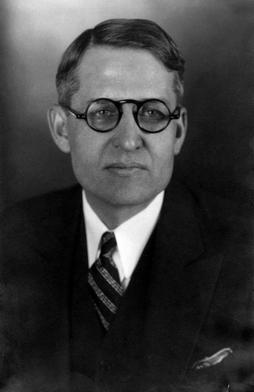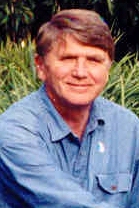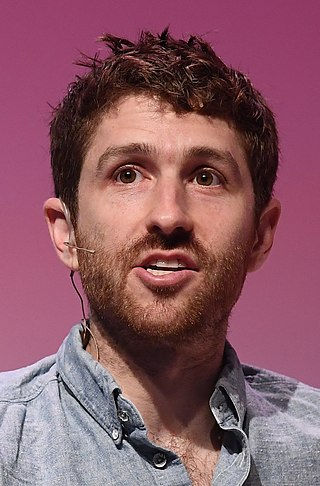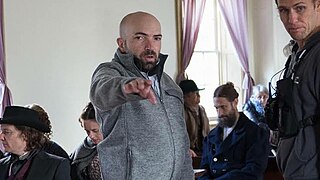
Brigham Young University (BYU) is a private research university in Provo, Utah, United States. It was founded in 1875 by religious leader Brigham Young and is sponsored by the Church of Jesus Christ of Latter-day Saints.
Persuasive technology is broadly defined as technology that is designed to change attitudes or behaviors of the users through persuasion and social influence, but not necessarily through coercion. Such technologies are regularly used in sales, diplomacy, politics, religion, military training, public health, and management, and may potentially be used in any area of human-human or human-computer interaction. Most self-identified persuasive technology research focuses on interactive, computational technologies, including desktop computers, Internet services, video games, and mobile devices, but this incorporates and builds on the results, theories, and methods of experimental psychology, rhetoric, and human-computer interaction. The design of persuasive technologies can be seen as a particular case of design with intent.

Harvey Fletcher was an American physicist. Known as the "father of stereophonic sound", he is credited with the invention of the 2-A audiometer and an early electronic hearing aid. He was an investigator into the nature of speech and hearing, and made contributions in acoustics, electrical engineering, speech, medicine, music, atomic physics, sound pictures, and education. Following his death, he was credited with collaborating with his doctoral advisor, Robert Millikan, on the Nobel-prize winning oil drop experiment which first determined the charge of the electron.
The Stanford Behavior Design Lab is a research organization advancing behavior change methods and models based at Stanford University. Founded in 1998 and directed by B. J. Fogg, the Behavior Design Lab is a team of Stanford students, recent graduates, and quantitative researchers who study factors that impact human behavior, and conduct IRB research. The team is the global authority in a new and systematic way to design for behavior change, an approach called “Behavior Design”. The Lab manager is Tanna Drapkin.

David Allan Bednar is a member of the Quorum of the Twelve Apostles of the Church of Jesus Christ of Latter-day Saints. A former educator, Bednar was president of Brigham Young University–Idaho (BYU–Idaho) from 1997 to 2004.

The J. Reuben Clark Law School is the law school of Brigham Young University (BYU) in Provo, Utah. Founded in 1973, the school is named after J. Reuben Clark, a former U.S. Ambassador, Undersecretary of State, and general authority of the institution's sponsoring organization, The Church of Jesus Christ of Latter-day Saints.
The Stanford Web Credibility Project, which involves assessments of website credibility conducted by the Stanford University Persuasive Technology Lab, is an investigative examination of what leads people to believe in the veracity of content found on the Web. The goal of the project is to enhance website design and to promote further research on the credibility of Web resources.
The Church Educational System (CES) Honor Code is a set of standards by which students and faculty attending a school owned and operated by the Church of Jesus Christ of Latter-day Saints are required to live. The most widely known university that is part of the Church Educational System (CES) that has adopted the honor code is Brigham Young University (BYU), located in Provo, Utah. The standards are largely derived from codes of conduct of the LDS Church, and were not put into written form until the 1940s. Since then, they have undergone several changes. The CES Honor Code also applies for students attending BYU's sister schools Brigham Young University–Idaho, Brigham Young University–Hawaii, and LDS Business College.
Captology is the study of computers as persuasive technologies. This area of inquiry explores the overlapping space between persuasion in general and computing technology. This includes the design, research, and program analysis of interactive computing products created for the purpose of changing people's attitudes or behaviors.

George Eugene England, Jr., usually credited as Eugene England, was a Latter-day Saint writer, teacher, and scholar. He founded Dialogue: A Journal of Mormon Thought, the oldest independent journal in Mormon Studies, with G. Wesley Johnson, Paul G. Salisbury, Joseph H. Jeppson, and Frances Menlove in 1966, and cofounded the Association for Mormon Letters in 1976. He is also widely known in the Church of Jesus Christ of Latter-day Saints for his many essays about Mormon culture and thought. From 1977–1998, England taught Mormon Literature at Brigham Young University. England described the ideal modern Mormon scholar as "critical and innovative as his gifts from God require but conscious of and loyal to his own unique heritage and nurturing community and thus able to exercise those gifts without harm to others or himself."
Marcus Helvécio Martins is the former dean and department chair for religious education at Brigham Young University–Hawaii (BYU–Hawaii), and also the author of Setting the Record Straight: Blacks and the Mormon Priesthood. Martins was the first black member to serve as a missionary after the revelation extending the priesthood of the Church of Jesus Christ of Latter-day Saints to all male members regardless of race or color. Martins is the son of Helvécio Martins, the first Latter-day Saint of African descent to serve as an LDS Church general authority.
Noel Beldon Reynolds is an American political scientist and an emeritus professor of political science at Brigham Young University (BYU), where he has also served as an associate academic vice president and as director for the Foundation for Ancient Research and Mormon Studies (FARMS). He was a member of the BYU faculty from 1971 to 2011. He has also written widely on the theology of the Church of Jesus Christ of Latter-day Saints, of which he is a member.
The Association for Mormon Letters (AML) is a nonprofit organization founded in 1976 to "foster scholarly and creative work in Mormon letters and to promote fellowship among scholars and writers of Mormon literature." Other stated purposes have included promoting the "production and study of Mormon literature" and the encouragement of quality writing "by, for, and about Mormons." The broadness of this definition of LDS literature has led the AML to focus on a wide variety of work that has sometimes been neglected in the Mormon community. It publishes criticism on such writing, hosts an annual conference, and offers awards to works of fiction, poetry, essay, criticism, drama, film, and other genres. It published the literary journal Irreantum from 1999 to 2013 and currently publishes an online-only version of the journal, which began in 2018. The AML's blog, Dawning of a Brighter Day, launched in 2009. As of 2012, the association also promotes LDS literature through the use of social media. The AML has been described as an "influential proponent of Mormon literary fiction."
Emma Smith: My Story is a 2008 film that focuses on the life of Emma Smith, wife of Joseph Smith, restorer of the Latter Day Saint movement. It was produced by the Joseph Smith and Emma Hale Smith Historical Society.
Murray Boren is a composer of opera, symphonic, chamber, and vocal works. He has written nine operas and over 100 songs and chamber compositions. He also contributed to the Joseph Sonnets. Among his operas are Book of Gold and Emma; both are based on the Church of Jesus Christ of Latter-day Saints history. In 2007, he retired from his position as composer-in-residence at the College of Music of the College of Fine Arts and Communications of Brigham Young University (BYU).

The Harold B. Lee Library (HBLL) is the main academic library of Brigham Young University (BYU) located in Provo, Utah. The library started as a small collection of books in the president's office in 1876 before moving in 1891. The Heber J. Grant Library building was completed in 1925, and in 1961 the library moved to the newly constructed J. Reuben Clark Library where it stands today. That building was renamed to the Harold B. Lee Library in 1974.

Tristan Harris is an American technology ethicist. He is the executive director and co-founder of the Center for Humane Technology.
This is a timeline of LGBT Mormon history in the 19th century, part of a series of timelines consisting of events, publications, and speeches about LGBTQ+ individuals, topics around sexual orientation and gender minorities, and the community of members of the Church of Jesus Christ of Latter-day Saints. Although the historical record is often scarce, evidence points to queer individuals having existed in the Mormon community since its beginnings. However, top LDS leaders only started regularly addressing queer topics in public in the late 1950s. Since 1970, the LDS Church has had at least one official publication or speech from a high-ranking leader referencing LGBT topics every year, and a greater number of LGBT Mormon and former Mormon individuals have received media coverage.
This is a timeline of LGBT Mormon history in the 2020s, part of a series of timelines consisting of events, publications, and speeches about LGBTQ+ individuals, topics around sexual orientation and gender minorities, and the community of members of the Church of Jesus Christ of Latter-day Saints.

Garrett Batty is an American film director, writer, and producer known for his film The Saratov Approach. He is a graduate of Brigham Young University and a native of Park City, Utah. He is a member of the Church of Jesus Christ of Latter-day Saints, and his films are part of Mormon cinema, but with a more general audience. He has written, directed, and produced four full-length films, including Freetown (2015) and Out of Liberty (2019), and will begin work on a fifth in 2020. For Freetown, he was awarded the 2015 Ghana Movie Award for Best Screenplay alongside Melissa Leilani Larson.







